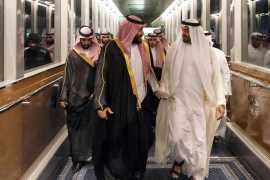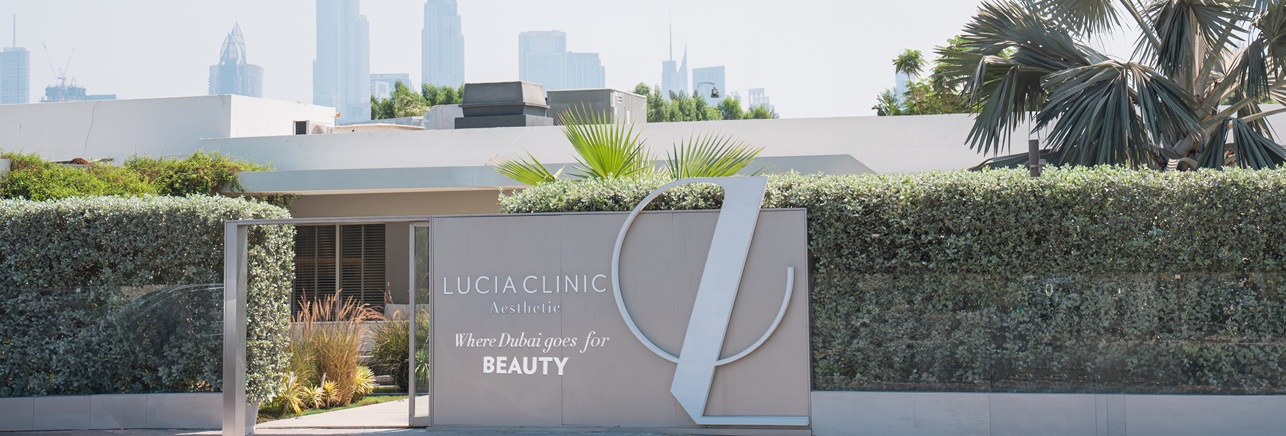UAE and Saudi Arabia unveil seven point co-operation plan including new cryptocurrency

The UAE and Saudi Arabia have unveiled a landmark agreement that will see the two countries co-operate in the development of a joint cryptocurrency, a form of customs union and a plan to ensure goods and supplies flowed in the event of a crisis.
It also included a plan to allow Saudi and Emirati SMEs to bid for procurement contracts in both countries and set out measures to ensure those with disabilities can travel by air with greater ease.
The two states struck the seven-point deal in Abu Dhabi on Saturday during a meeting of the Executive Committee of the Saudi-Emirati Co-ordination Council.
The cryptocurrency pilot will be seen as the most significant undertaking to date.
Supporting financial technology and SMEs is seen as a crucial way to move on from reliance on petro-dollars and make the shift to a knowledge economy.
Other measures focus on improving financial literacy among young people to improve spending habits and closer working practices in the aviation sector.
Mohammad Al Gergawi, Minister of Cabinet Affairs and The Future, from the UAE side, and Mohammed bin Mazyad Altwaijri, Minister of Economy and Planning, from the Saudi side, said the deal covered the fields of services and financial markets, tourism, aviation, entrepreneurship, customs and security, among others.
The council first met in Jeddah last summer with broad focus on three main areas: economic, human and knowledge, and political and military co-operation.
It is chaired by Sheikh Mohamed bin Zayed, Crown Prince of Abu Dhabi and Deputy Supreme Commander of the Armed Forces, who at the time described the arrangement as a "historic opportunity to create an exceptional Arab model of cooperation", and Saudi Crown Prince Mohammed bin Salman.
The seven new initiatives are:
1. Saudi-Emirati cryptocurrency pilot
"The cross-border digital currency will be strictly targeted for banks at an experimental phase with the aim of better understanding the implications of Blockchain technology and facilitating cross-border payments," state news agency Wam reported on Saturday evening.
It said the virtual currency relies on the use of a distributed database between the central banks and the participating banks from both sides. It seeks to safeguard customer interests, set technology standards and assess cybersecurity risks. The project will also determine the impact of a central currency on monetary policies.
2. Fast track customs for key firms
This facilitates the flow of traffic at the entry ports between both countries and at customs outlets through a fast track system, Wam reported. Selected companies - 41 from Saudi Arabia and 40 from the UAE - would be listed as Authorised Economic Operators and able to use the system.
"The initiative will contribute to smoother operations between customs and commercial establishments, and facilitated trade between the two countries," Wam reported.
3. Procurement opportunities for SMEs
This would allow small and medium-sized businesses in the UAE and Saudi Arabia to bid for contracts in both countries, according to the announcement.
Supporting SMEs is seen as a key way to stimulate the post-oil economy.
4. Joint supply chain in times of crisis
A joint training exercise will be undertaken by the two countries to test how well prepared the supply chain would be for a crisis or natural disaster. It will also identify points for improvement. That is expected to mean the countries could rely on each other in the event of shortages of food or key goods.
5. Better disabled access in airports
The initiative between the two countries is to enhance the experience of "People of Determination" by ensuring the compliance of disabled-friendly airports in both countries, Wam reported.
It will standardise travel procedures and regulations for accompanying family members and ensure airport staff are fully trained to support them.
6. Money management for children
This section of the deal will focus on ensuring children aged between seven and 18 are taught how to manage their money properly to prepare them for adulthood.
The programme will "enable them to simulate the business world to learn about saving and smart spending" as well as a culture of entrepreneurship, Wam reported.
7. Common market for civil aviation
The Saudi-Emirati common market for civil aviation aims to achieve "comprehensive integration and cooperation in the civil aviation sector in vital areas" including air navigation, safety and security, and investigation of air accidents.
The market is to be considered to be an "advanced stage of economic integration".
The Emirati hosts concluded the meeting with a visit for their guests to Louvre Abu Dhabi and to the Roads of Arabia exhibition, which showcases the archaeological history of Saudi Arabia and the region, which is on display until February 16.
The National























